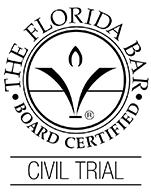In Florida, workers’ compensation is generally calculated by reviewing three types of losses – wages, medical expenses, and death benefits. Workers’ compensation insurers determine your total benefits by adding up these losses.
Should they miscalculate your damages or try to lowball you, you may benefit from hiring a workers’ compensation lawyer near you.
Workers’ Compensation and Medical Benefits
If you were injured on the job, and your employer carries workers’ compensation insurance, you can receive benefits that cover the following types of medical expenses:
- Physical therapy
- Prescription drugs
- Prosthetic implants
- Hospitalization
- Surgery
- Attendant care
- Medical tests
In addition to these expenses, you can receive reimbursement for travel expenses associated with your treatment. A lawyer can add up how much you’ve spent on medical treatment to determine this amount.
Tips for Securing Medical Benefits
According to the Florida Department of Financial Services, following these pointers could simplify securing medical benefits during your workers’ compensation claim:
- Notify your employer as soon as you’re injured.
- Don’t skip medical appointments, as it could result in your benefits ending.
- Notify emergency room employees that you were injured on the job if your accident requires emergency treatment and provide them with contact information for your insurer or employer.
Workers’ Compensation and Lost Wages
Lost wage benefits depend on your disability status. There are three main disability status categories:
- Temporary total disability
- Temporary partial disability
- Permanent total disability
Each status involves a different method of calculating wage reimbursements. To determine which category applies to you, you’ll need to schedule an appointment with an employer-approved physician. This physician will decide if you can continue working.
Temporary Total Disability
Temporary total disability applies when your injuries completely prevent you from working. Generally, under temporary partial disability, you can receive 66 2/3% of your pre-injury wages biweekly. If you meet severe injury eligibility, you could receive up to 80% of your previous wage for up to six months.
These benefits don’t apply to your first seven days of disability unless you exceed 21 days of temporary total disability. You can receive temporary total disability benefits for up to 104 weeks.
Temporary Partial Disability
Temporary partial disability is for those who can work with their injury but at a reduced capacity. It kicks in when your injury prevents you from earning more than 80% of your previous wage.
For example, imagine that you previously earned $800 a week. After your injury, you were forced to work less, so you now earn $400 a week. $400 is less than 80% of $800, so you’d qualify for temporary partial disability.
Like temporary total disability benefits, temporary partial disability benefits can last up to 104 weeks.
Permanent Total Disability
Permanent total disability only applies to cases where an individual is entirely unable to work. Examples of injuries that can cause permanent total disability include:
- Spinal cord injury involving severe paralysis
- Amputation of an arm, foot, hand, or leg
- Total blindness
- Severe brain damage causing neurological disruption
- Severe burns covering large portions of the body
To qualify for permanent total disability under Florida Statutes § 440.15, you must not be able to “engage in at least sedentary employment within a 50-mile radius of the employee’s residence.”
Like temporary total disability, this benefit pays up to 66 2/3% of your previous wages. You can receive permanent total disability benefits until the age of 75. If you don’t qualify for Social Security programs, you may be able to receive these benefits beyond the age of 75.
Workers’ Compensation and Death Benefits
You could be eligible for death benefits if you lost a loved one in a workplace accident. These benefits provide coverage for the following:
- Compensation to dependents
- Educational assistance for surviving spouses
- Funeral expenses up to $7500
Surviving spouses qualify for 50% of the decedent’s (loved one who passed away) pre-death wages for the rest of their life. If the spouse has children, they qualify for an additional 16 2/3% of the decedent’s wages, for a total of 66 2/3%. Other dependents and loved ones, like parents, can also qualify for death benefits compensation. In total, death benefits cannot exceed $150,000.
Learn More About How Workers’ Compensation Is Calculated With Our Firm Today
Are you confused about the benefits you qualify for, or do you need assistance with your workers’ compensation claim? At Dismuke Law, we can help you navigate the aftermath of a severe workplace injury and fight unfair workers’ compensation denials.
All you need to do to get started is contact our offices for a free case evaluation – Just Ask Dave. We also offer our services on a contingency-fee basis, so you won’t pay us any fees unless and until we secure compensation for you.


![cftla-member[2]](https://www.1800askdave.com/wp-content/uploads/2022/03/cftla-member2.png)
![cftla-member[3]](https://www.1800askdave.com/wp-content/uploads/2022/03/cftla-member3.png)










